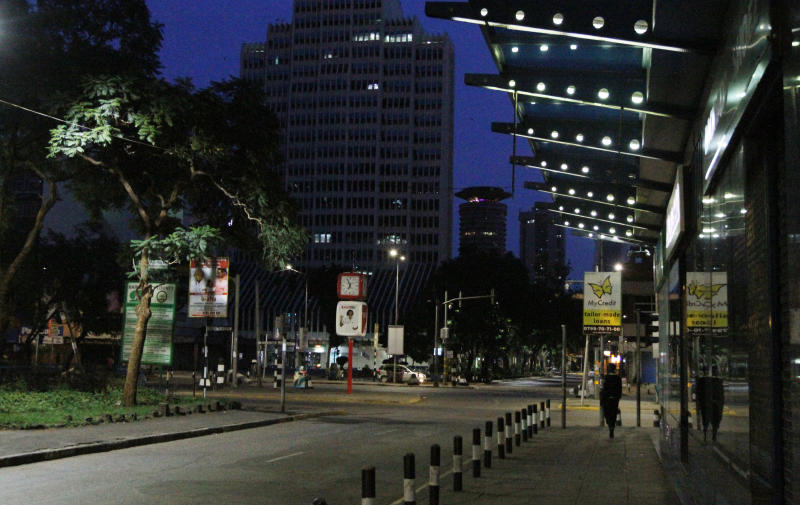×
The Standard e-Paper
Kenya’s Boldest Voice

It is 6pm. This is the hour that defines your relationship with the men in blue; the hour that determines where you will lay your head for the night if you are not in your house unless you are one those people exempted from Kenya's dusk-to-dawn curfew.
Along Kenyatta Street in Nairobi, a few people are running to catch the last buses leaving the Central Business District to their homes. The roads are empty apart from a few PSVs leaving town while others park along the streets having called it a day.